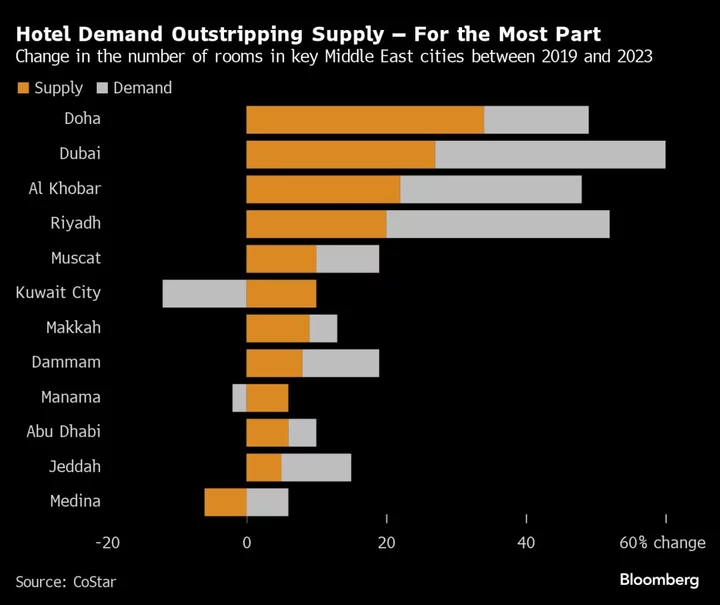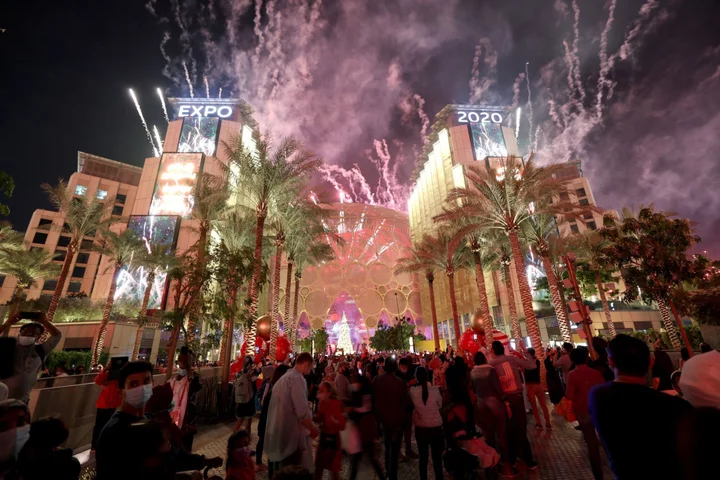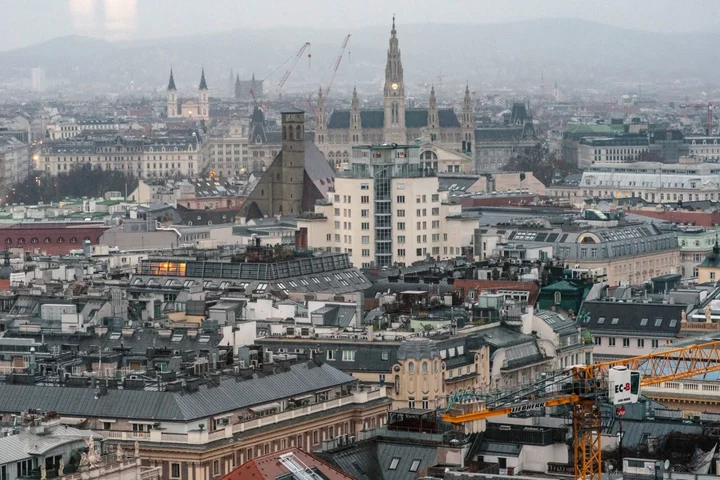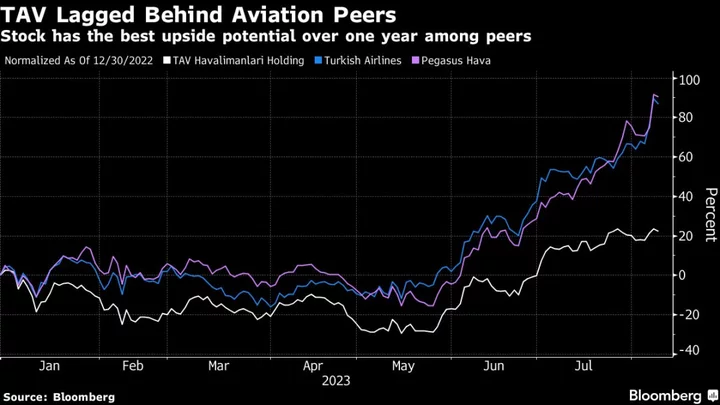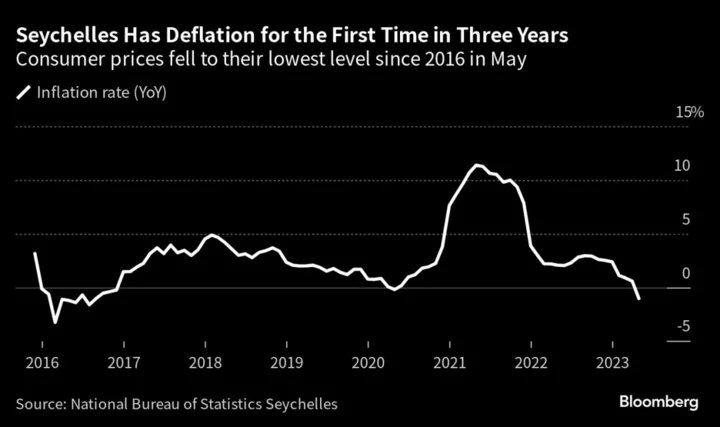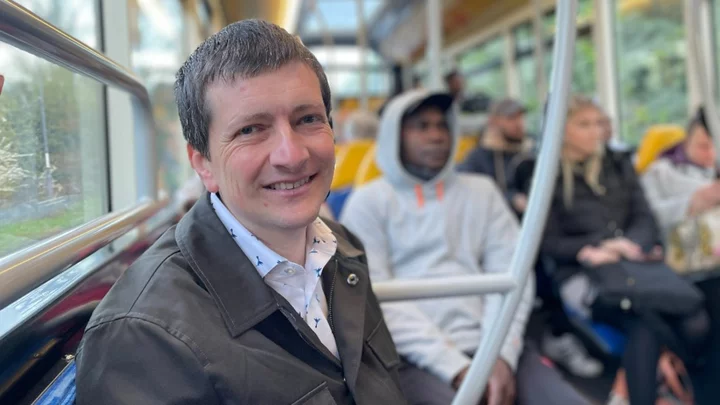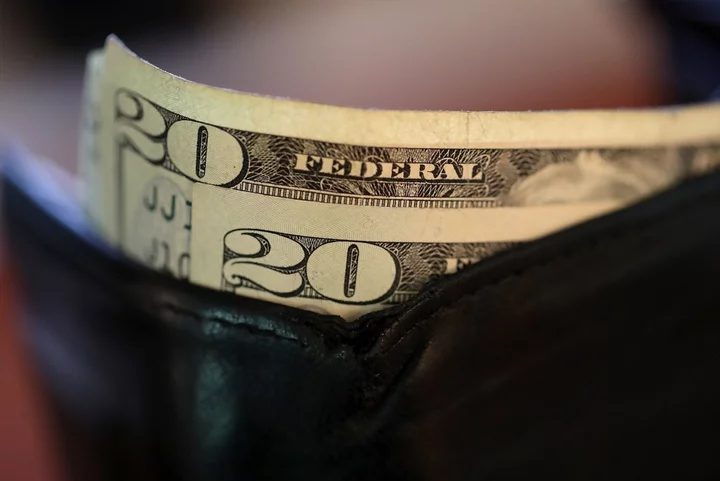Hi, it’s Lisa, your Pursuits correspondent in Dubai. We’re heading into a bustling few months in the Gulf, with Dubai Watch Week (Nov. 16), Abu Dhabi’s Formula 1 race (Nov. 18) and COP 28 (Nov. 30) just around the corner.
While hotels and restaurants are filling up as the weather cools down, some community and family events are being canceled because of the Israel-Hamas war, which is vaguely referred to here in corporate messaging and on the airwaves as the “situation,” or “global events.” Online travel agency Skyscanner had planned on releasing a travel trends report on Oct. 24, but a company spokeswoman said the report was being delayed “due to the current situation.” Some Halloween events—yes, we trick-or-treat in Dubai—were toned down or canceled, but many still went on with full fanfare.
In Saudi Arabia, the Saudi investment summit unofficially nicknamed “Davos in the Desert” kicked off with dance and singing performances. Asked how the war would affect travel to the kingdom, many attendees were upbeat. “We are concerned of the situation, but so far our numbers are in the right direction,” said Gloria Guevara Manzo, chief special adviser for the Saudi Ministry of Tourism. She noted that the finance event, the Future Investment Initiative, attracted 6,000 people. “We haven’t seen an impact yet.”
Here’s more of what I’ve been picking up lately.
Habitas to Run Three Experiential Hotels in Saudi Mountains
A hospitality company that was once best known for Burning Man-style tents is planning a trio of otherworldly, towering structures jutting out of rocky mountains in northwest Saudi Arabia.
The three new hotels, which look like they’re straight from a Dune movie set, will be run by Habitas, a company that started out in luxury camping. It’s now expanding, all with the idea of melding the luxury of hotel brands like Aman with the sensibility of the Burning Man festival. The newly announced projects are part of the kingdom’s trillon-dollar push to open up its borders and economy to tourists, and will be located within the Neom district by the Gulf of Aqaba, just across from Egypt’s Sinai Peninsula, in a new destination called Leyja. Each of the 40-room properties will have a different focus: adventure, wellness and nature.
The properties will be in addition to Habitas hotels planned for elsewhere in Saudi Arabia, financed with $400 million from the Saudi Tourism Development Fund, Habitas Chief Executive Officer Oliver Ripley says. He declined to name an expected completion date for the projects. The company wants to create a connected ring of hotels, or a circuit, throughout the country, giving guests an opportunity to see the kingdom while always staying in Habitas hotels.
Striking images of the Leyja hotels circulated more than two weeks ago, when Neom released videos of the project with extremely realistic-looking renderings. The brand hadn’t been revealed as Habitas until now.
Neom approached Habitas with designs already in hand, Ripley says, but Habitas has been expanding since its founding beyond tents; its new Habitas on Hudson in upstate New York is located in a former manor house.
Ripley often says Habitas is more about creating experiences than just providing a place to stay. In Leyja, that starts with the arrival at the welcome center at the mouth of the wadi, or valley. “You are asked to take a moment to pause,” Ripley says. “You go through your little welcome ceremony, and you set your intention and purpose.” Guests are then told about the history and culture of the region.
And then they have to walk. A lot. From the welcome center, the first hotel is a hike of 3.5 kilometers, or about 2 miles, which takes about 45 minutes to an hour. (But don't worry, you don't have to carry your bags.) “You're not being dropped off in your car and greeted by the front door guys,” Ripley says. “You have to walk. And it's one of the most dramatic and immersive and also humbling walks.”
Asked what they’ll do about people who aren’t able to walk, Ripley says they’re still figuring that out, but there will be alternatives. “Maybe there’ll be horses, maybe there’ll be other ways that we can make the journey more immersive,” he says.
The company’s first hotel in Saudi Arabia, in the ancient city of Al-Ula, is attracting about 70% of its guests from within Saudi Arabia, and 30% from abroad. That the hotel is often fully booked, Ripley says. Depending on the time of year, rooms start at around 2,600 Saudi riyal, including tax, or about $693. Room rates at Habitas’s Leyja hotels haven’t been determined but will be in a similar category to those at Al-Ula, Ripley says.
The once closed-off Saudi Arabia now aims to have 70 million international tourists a year by 2030. Earlier this week, luxury hotel brand Six Senses announced it would add a property in Al-Ula to its Saudi portfolio.
A New Destination in Jordan
In a few years, the Jordanian capital Amman plans to have a new neighborhood rising out of the sand.
The city is about to create a new district anchored by a 300 million dinar ($423 million) conference center, surrounded by office buildings and four- and five-star hotels. This will be the second major redevelopment project in the city run by the Abdali Investment and Development Company. The goal is to finish by 2030.
While this may seem like another exponential Middle East growth story, Jordan doesn’t have the same advantages of its Arab neighbors in the Gulf. All those hotels you hear planning to open in Saudi Arabia? Typically, they’re owned by Saudis, while their construction and development is paid for through its vast sovereign wealth. Jordan doesn’t have that kind of oil money. And in the US, business districts often give out tax breaks to attract companies. The companies in Abdali get some of that for start-up costs, but not much else.
Instead, Abdali has tried to attract companies just by creating the nicest place to work. Businesses like regional banks, the French telecom Orange and Amazon—with about 2,500 employees—have set up offices in the district that holds the first project, called the Boulevard. The 1,300-foot-long pedestrian area features several blocks of shops, restaurants, cafes and bars and a large mall. The modern, slate-gray look of the Boulevard was a departure from the rest of beige-colored Amman. Emiratis have been the lead foreign investors, with $721 million—or about 30% of the total investment—committed so far.
Abdali wants to take what worked from the Boulevard—and leave behind what didn’t. For example, apartments in the Boulevard didn’t catch on with the market as hoped, so plans for the conference center district don’t have a residential component at the moment, Abdali Chairman Amer Al-Fayez says. For phase two, the group has heard from Gulf entities interested in investing, but it hasn’t gone on a road show and doesn’t have commitments yet. It’s considering a public offering, but that’s at least three years away, Al-Fayez says.
As for dining, Al-Fayez recognizes top restaurants and places to eat are becoming a more-important draw than ever. He wants to bring in famous local brands to reproduce an authentic, traditional-looking corridor for the second phase. “We were talking about this just before you came in,” Al-Fayez says to me in his office, where we are sitting with other members of staff. “I was telling you guys we need to create like an old restaurants alley here. I want to create this nostalgic feeling.”
Dubai Can’t Build Hotels Fast Enough
I often hear people ask, is Dubai building too many hotels?
It’s a sensible question for a city that just a few years ago had an oversupply problem so bad that the government created a commission to manage it and basically ordered builders to stop building.
But look at how Dubai’s hotel business is doing: many cities would like to have their hotel rooms as full. Dubai welcomed more than 11 million overnight visitors this year through August, with average occupancy at 75.5%, according to the Dubai tourism department.
Some of the latest figures from CoStar show that even as thousands of more hotel rooms are being built, the number of people who want to book them is growing faster. The number of hotel rooms in Dubai is up 27% compared with 2019, but the demand for those rooms is up 33%. In Riyadh, the numbers are even more stark: supply is up 20% and demand is up 32%.
All that supply, however, is part of the reason why room rates are falling—down 6% year over year in Dubai.
Other Middle East stories you should see:
- Dubai’s summer of tourism was red-hot, as Russians filled the city (Skift)
- Hilton plans to boost its Middle East presence by more than 125% (Arab News)
- Saudi Arabia’s $7.7 billion luxury mountain tourism plan (Gulf News)
- How Israel’s Brown Hotel Group Is Responding in Wartime ( Skift)
Other Bloomberg stories you should see:
- One of the World’s Priciest Fabrics Might Be Sitting Right in Your Home
- Airbnb Is Fundamentally Broken, Its CEO Says. He Plans to Fix It.
- A Fund Manager Plans to Turn Secret James Bond Tunnels in London Into a Tourist Attraction
- Here They Are: The Best New Wall Street/Midtown Vests
- In Colorado, a Tiny Ski Town Faces a Big Future With New Owners
- US Raises Travel Advisory Level on Israel Over Threat of Attacks
Introducing: Bloomberg Travel
We recently launched Bloomberg Travel, a new hub for globetrotting leaders, covering everything from the business of travel to the most worthwhile experiences money can buy. We’ve also released the first edition of our new city guide series, Two Night Minimum, meant for those who want to get to the heart of a place in a short time—whether on a business trip or a weekend vacation.
--With assistance from Fahad Abuljadayel.

